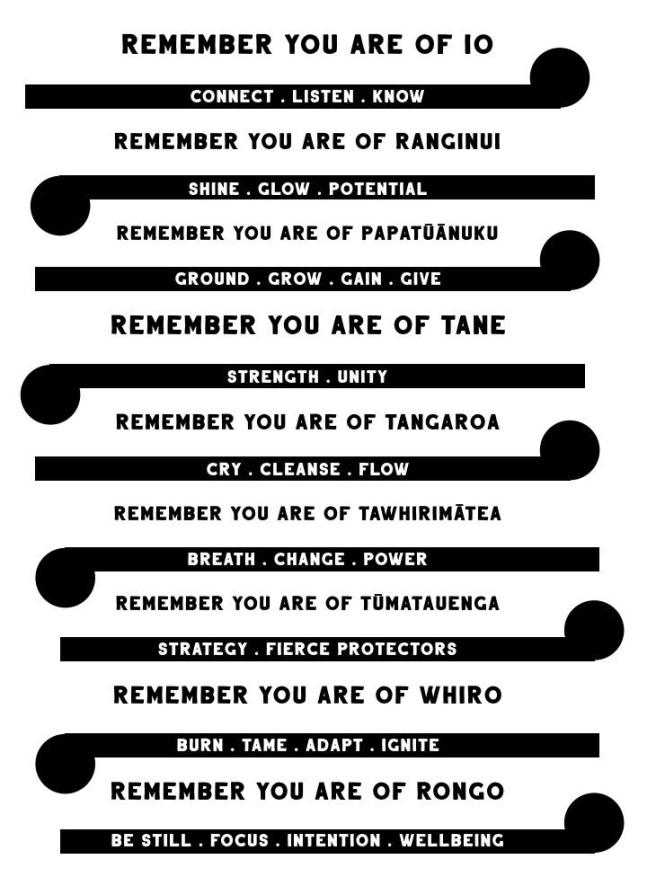
Image source: Whai Ora (Facebook Page)
“There can be no such thing as kaupapa Māori political parties or politics in Aotearoa” (Willie Jackson, Labour Party (2017). Māori TV, General/List Election Special)
I begin with that claim because at the time, I was confounded at first that it fell out of Willie Jackson’s mouth, and then conflicted about the extent of truth in the claim. It’s one of those claims that stirs inside you. Never settling, never still. But you don’t really want to address it in case it destabilises the foundations of your political thought. Kia kaha you tell yourself.
So let me briefly touch on why I think there is truth to the claim. Firstly, we know that the parliamentary system is built, shaped and operates according to rules decided outside te Ao Māori. Secondly, we know that many Māori political aspirants dream of holding ministerial portfolios to advance change for Māori inside government institutions. And lastly, we know that as members of political parties, individuals are always caught in a tension between party agendas and personal values – with the former more often than not prevailing. If that’s the case, then it’s not kaupapa Māori because in a sense, Jackson is right – its capitulation to the system, despite the most earnest intentions.
But it doesn’t have to be that way.
Māori politics experiences different waves over time as new voices and issues rise and seek an outlet. Some mild in approach, some with a decibel range beyond the need for a microphone and many other variations in between.
In 2017, the Labour Party promised a new wave of Māori political representation – the largest Māori caucus to ever sit in Parliament with the objective of producing the largest set of outcomes for Māori. This post isn’t about whether or not the party has delivered. Many have written and continue to analyse the strength of that initial promise.
What I propose is an alternative – a future of kaupapa Māori politics. Because as I wrote in The Interregnum (Morgan Godfery (ed). 2016. BWB):
“I like to describe kaupapa Māori politics as a lived story. That is, a story that is continuously shaped by our past and our present and that will shape our future”.
In this sense, I don’t see systems as fixed or kaupapa Māori as something that can only exist outside formal institutions. What matters is what we do and how we do it – especially inside those institutions.
I maintain earlier claims that I have made, that there is not one party that can universally claim to be the voice of Māori because the optics and realities of Māori representation will look different to different people at different times. However, I’m still convinced that mainstream parties are incapable of reflecting an indigenous worldview. That will be controversial and rightly so. I don’t speak for all Māori and there will always be a range of views that exist in the context of perpetual colonisation. I don’t say that to diminish the integrity of Māori who choose a mainstream party as their vehicle for change. I say that as a reality check on whose interests are prioritised in the “whole of party” mainstream agenda.
I absolutely believe that mainstream parties can be sensitive to Māori issues, and that they can work with Māori to design policies, strategies, services, outcome frameworks that attempt to shift the disparity between Māori and non-Māori. However, being sensitive to and supportive of Māori is not synonymous with prioritising and progressing Māori rights and interests in addressing inequities.
What we often overlook is that the party in government is the Crown. Its Ministers are Ministers of the Crown. Some might argue that it makes no sense to disaggregate the two given the Crown represents all New Zealanders. Except it doesn’t – it only presumes to in abrogation of its foremost obligations under two core instruments: He Whakaputanga and Te Tiriti o Waitangi. This is precisely what perpetual colonisation looks like. We are not in a post-colonial era because colonisation did not end, it normalised to appear invisible.
So let me get to the point about a potential “future for kaupapa Māori politics”.
Firstly, I question the desire to hold Ministerial delegations. While Ministers can influence system changes, as we have learned they can only do so insofar as the governing party or governing coalition allows. For micro-parties, entering formal arrangements with governing parties, erodes that influence further through positioning the party as an agent of the Crown and depriving the party of its power as an independent voice for Māori – the point I believe Jackson was making. However, his point hangs on the assumption that all Māori political aspirants desire Ministerial powers or to be in government.
But what if they didn’t? What if Māori political aspirants refused to seek Ministerial delegations and instead sought permanent seats on the cross benches? This could serve a very useful function with the right strategy. More on that shortly. The point here is that the essence of kaupapa Māori is arguably eliminated when the party or individual seeks a governing role with the Crown to make itself an agent of it.
Māori are limited in how we can participate in political life in New Zealand. That doesn’t mean there isn’t a realm of possibility that enables us to create new spaces within existing structures to effect the changes we want. To continue our activism and agitation inside the places that seem an unnatural fit such as parliament.
The next step then is to consider what kind of agenda would such a party or movement advance?
There is momentum to move away from being policy driven which requires participation as a Crown agent, toward a vehicle for constitutional change. Therefore, rather than trying to advance a policy agenda which tends to focus on how much budget money can be secured against a set of planned announceables, a kaupapa Māori politics would focus on reconfiguring the machinery of government to redistribute participatory power back to the community where policy innovation actually happens. This requires seats and a participatory framework for communities.
In a practical sense, this could be achieved by providing avenues for whānau, hapū and iwi to input into or design members bills that drive the changes needed in their communities. Developing a framework or tool to assess new legislation or changes – voting government bills up or down based on their consistency with Te Tiriti o Waitangi. The salient thing here is that focusing on constitutional change gets to the guts of what remains a frustration for Māori and helps new political actors to avoid the imitation of western politics that moves us away from kaupapa Māori.
In my mind, this approach has the potential to radically shift power and redistribute it back to the people – our people. Holding all seven Māori electorate seats could help create what we might call a Tiriti accountability arm in Parliament. This would, however, require that these seats be committed to the cross-benches as a check on the Executive and Legislature to ensure Māori rights and interests are protected and advanced at all times.
A constitutional focus with participatory mechanisms could also encourage more Māori to enrol on the Māori electoral roll which could increase the number of dedicated Māori seats, and the size of the Tiriti arm.
When thinking about the future demographics of New Zealand, the Māori population is growing meaning the number of seats could be hugely significant and Māori should plan for this demographic shift that will take place within the next 20 years rather than leave it to chance or to mainstream parties.
The groundswell of activism and mobilisation of Māori demonstrates that collectively we are hungry for a party or movement that will raise its voice as loudly in the house as it would on the frontlines. A movement or phenomenon that will use its collective power to activate change. Being Tiriti focused restores the collective aspirations of Māori rather than perpetuating the adversarial politicking that has only divided our interests and our relationships to each other.
The question is who will be brave enough to ignite that movement in 2020? Who will put aside their aspirations for personal power in favour of the collective power of communities for constitutional change?

